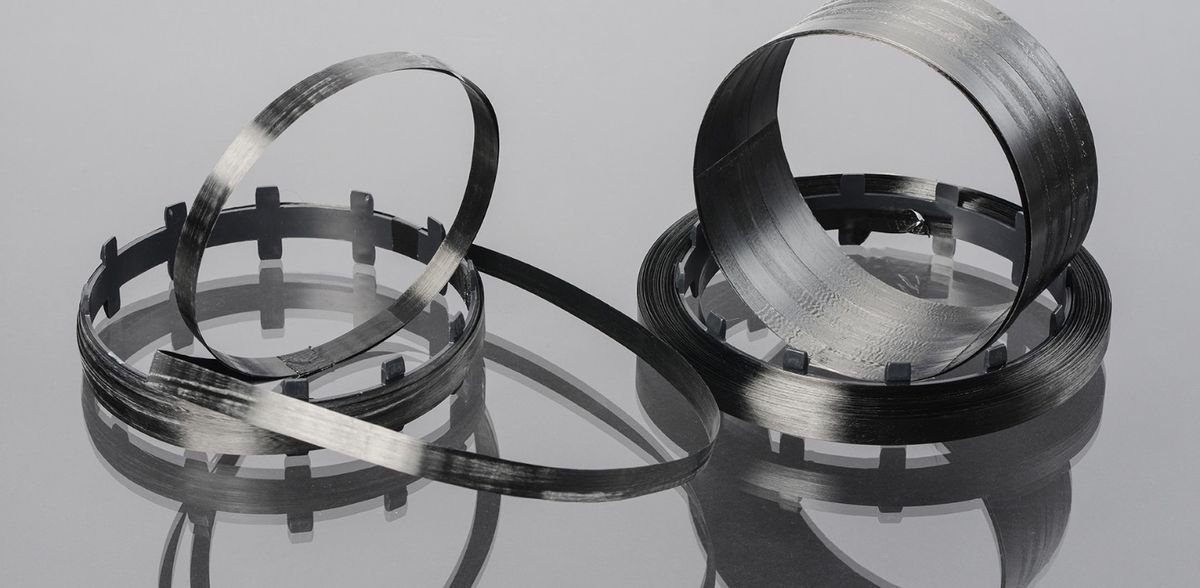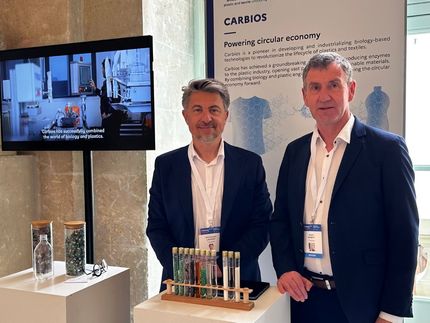Unwound in high quality: Continuously detach and recycle thermoplastic carbon fiber tapes with new recycling process
Advertisement
The sales market for plastic products is growing. At the same time, however, the environmental impact of non-degradable plastics is increasing and requires new recycling strategies. At Fraunhofer Institute for Production Technology IPT in Aachen, researchers have developed a novel recycling process to recover the fiber composite material of used Pressure Tanks in a peeling process and reuse it for new lightweight products. The aim is to recycle fiber-reinforced plastics (FRP) without any significant loss of product quality. The research team has now succeeded in doing so in the "Tankcycling" project: Over 90 percent of the mechanical strength properties are retained in the recycled material.
Fiber-reinforced pressure tanks – light and stable
Since hydrogen is regarded as the energy storage medium of the future and since this odorless gas has to be stored under high pressure, its use in trucks or automobiles inevitably entails the question how to store it safely. This is achieved when hydrogen is stored in high-quality pressure vessels made of carbon fiber-reinforced plastics. These pressure vessels must be highly resilient and at the same time lightweight and corrosion-resistant so that they are suitable for electromobility. In the wake of the energy transition, the demand for high-quality hydrogen tanks has increased. In principle, however, other liquids or gases can also be stored in fiber-reinforced pressure tanks.
Recycling carbon fiber reinforced tapes by unwinding
Such pressure tanks are manufactured in a laser-assisted tape winding process: In this process, thermoplastic glass- or carbon-fiber-reinforced tape is wound over a base body made of plastic, the so-called liner. The unidirectional (UD) tape that covers the pressure tank cannot be reused in the conventional life cycle of the pressure tank and ends up in hazardous waste dumps.
The recycling process patented by Fraunhofer IPT (DE 10 2016 117 559 A1), which it continued to develop in the "Tankcycling" project, makes it possible to remove the UD tape from the liner in a peeling process. In this way, this tape can be reused for other products that are also manufactured with the tape winding process. The Fraunhofer researchers have developed a plant prototype with various modules: the tape passes through one in the recycling process before it is stored onto a spool at the end in another.
Recycling in mini format: The tank recycling module can be connected to a robot head
In downstream tests, the scientists checked the mechanical load-bearing capacity of the recycled material and the original material. Here it was shown that the recycling process did not reduce the quality of the material significantly. Destructive standard tests demonstrated that the recycled material had lost only five to ten percent of its mechanical quality compared with the virgin material. Based on these findings, the researchers were able to define the requirements for the recycling process and develop a tank recycling module. This module represents a further development of the recycling process, which was developed on a stationary test rig. In its miniaturized format, the tank recycling module can be attached to a robot arm. This innovation allows pressure tanks with their complex three-dimensional geometry to be fully recycled. In addition, the recycling process and subsequent rewinding of the tape can be automated in this setup.
Reducing material consumption and environmental impact
The recycling process with its implementation in the tank recycling module efficiently explores the limits of what is technically feasible while saving energy, material and costs. By recycling the fiber-reinforced plastic tapes, the process contributes to advancing the sustainable production of future thermoplastic fiber composite products that can be manufactured using the tape winding process.































































